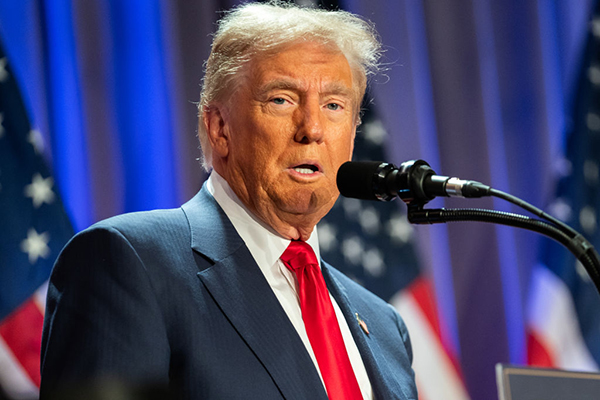Is it finally time for value investing to shine?
As economic and geopolitical volatility increase, is it time for the rather less than swashbuckling style of value investing to come more to the fore? David Craik asks a range of experts where they are looking for the best value opportunities.
9th December 2024 09:00
by David Craik from interactive investor

Investors and markets in general have been largely captured by the so-called Magnificent Seven tech stocks and galloping growth strategies in recent years.
But as economic and geopolitical volatility increase, is it time for the rather less than swashbuckling style of value investing to come more to the fore?
- Invest with ii: SIPP Account | Stocks & Shares ISA | See all Investment Accounts
The numbers look promising. According to FE Analytics (to 2 December 2024), the MSCI World Growth Index has returned 31.7% over one year versus 23.1% for the MSCI World Value Index.
Over the last three months and one month, the gap is closer. Over three months, the Growth Index up 10.8% and Value Index is up 7.2%. Over one month, the respective returns are 8.3% versus 6%. But there is still uncertainty about the value of value.
Catalyst for value rally unclear
Jarrid Klug, a fund manager at DWS Asset Management, says: “There are not many people out there who have been defending value investing recently. Value investing usually comes to the fore when you come out of a recession because you have a very big discount in equities with solid characteristics. That’s typically the time when you can buy good companies with a strong moat at attractive valuations. We’ve also seen a narrowing of economic growth, which is less beneficial for value strategies than a broader growth.”
Despite a relative valuation dispersion between value and growth being close to a record high, Klug says the needed momentum behind a valuation rally is still not clear. “AI is a growth theme which doesn’t seem to be slowing down so far. While expectations are lofty they are still being beaten and subsequently upgraded,” he says.
Joe Bauernfreund, chief executive and chief investment officer at Asset Value Investors, largely agrees.
He points out: “Value investing as a style has been overlooked for a number of years and a whole generation of investors have seen that growth investing can be quite spectacular at times.
“On a relative basis, the fact that the Magnificent Seven continue to storm ahead means it is challenging to keep pace with the broader indices and a roaring benchmark. If they continue to perform well then I suspect most investors will continue to be seduced and interested in that growth story.”
‘Valuation matters’
But he adds that these investors could get a rude awakening. “Investing in profitless tech companies on huge valuations or expecting firms to continue hitting the required growth rates may be all some new investors know,” he says. “But these things don’t last indefinitely. We are already seeing more interest in value helped by higher interest rates. It is an investment strategy that can compete over the long term. Valuation matters.”
Jonathan Davis, economist and wealth adviser at Jonathan Davis Wealth Management, is certainly bullish about value.
He says: “Yes, it is time for value. On a medium to long-term view we have, since this summer, materially moved into global growth with a focus on emerging markets outside China. That sector has a far lower debt to GDP ratio than China and developed markets meaning that asset growth has a tailwind not a headwind.”
- Watch our video: areas of the UK stock market that stand out
- Sign up to our free newsletter for investment ideas, latest news and award-winning analysis
Davis has also moved more materially into energy and commodities generally. “These are severely undervalued sectors. But we are now in an era of higher interest rates and inflation and we’re not going back,” he says. “As such we have a significant allocation to global mid-cap energy companies.”
In terms of picks, Davis has taken a sizeable exposure to the Smithson Investment Trust Ord (LSE:SSON), which invests in between 25 to 40 companies, which the investment manager believes can compound value over many years. “It has a discount to net asset value of around 11% and has companies in there which are severely undervalued on a medium to long-term basis,” he says.
He also likes Heriot Global Smaller Companies fund which invests in dividend growth businesses. “They are identifying companies which have materially rising underlying profitability, and this may or may not be reflected in share prices,” he explains. In energy, Davis favours Schroder ISF Global Energy.
Trump could boost value approach
Klug says that the intention of the soon-to-be second Trump administration to introduce trade-protectionist policies could widen growth in the US domestic economy, boosting a value approach. Higher US interest rates for longer, less regulations and tax reforms should also be good, he says, for US financial stocks – traditionally a large part of the value sector. In Europe, for example, he believes bank valuations are too cheap but generating double-digit returns on equity.
“Another big part of value is energy and the Trump mantra of ‘drill, baby, drill’ could lead to a re-rating of these stocks,” Klug says. “But protectionism impacting global trade could in turn hit energy demand, so it is not all positive for energy.”
He also likes building materials stocks helped by the growing sustainability agenda and need for more energy-efficient homes, as well as transport stocks such as railways in the US.
- Funds and trusts to add spice to a portfolio
- Ian Cowie: Trump tariffs to harm this trio, but I’m selling only one
Bauernfreund, who is also manager of AVI Global Trust Ord (LSE:AGT) and AVI Japan Opportunity Ord (LSE:AJOT) trust, points to opportunities in family-controlled holding companies such as Norway’s media and marketplace firm Schibsted, publishing firm NewsCorp and Belgian firm D’leteren, which owns repairs business Autoglass.
He says: “They have very good-quality underlying businesses – some are unlisted, so the valuations are unclear to many investors – and predictable catalysts over a period of time.”
Bauernfreund is also finding lots of opportunities in Japan with the scale of corporate governance reform.
He explains: “As activist investors, we can work with companies with strong balance sheets and get their share prices up. These range across sectors from healthcare to IT and traditional textile businesses. We’ve also got some high-growth e-commerce firms because value investing is not just buying cheap but about buying a good-quality firm which is growing in value at a discount.”
An example of this is AVI holding a stake in holding company EXOR NV (EURONEXT:EXO), which owns luxury car maker and growth stock Ferrari, at a discount to NAV. “That is where the value comes into it,” he explains.

Investment trust and UK value opportunities
Another area of opportunity points out Bauernfreund is the closed-ended investment trust space. “There are a lot of very wide discounts on trusts focusing on unlisted assets and more vocal investors putting pressure on management and boards to address these,” he says. Example include Partners Group Private Equity Ord (LSE:PEY) and Cordiant Digital Infrastructure Ord (LSE:CORD).
Matthew Tillett, fund manager at Premier Miton, outlines sectors such as travel in the UK with a three-to-five-year growth journey ahead as value opportunities. Stocks include catering firm SSP Group (LSE:SSPG) and airlines Wizz Air Holdings (LSE:WIZZ) and Jet2 Ordinary Shares (LSE:JET2). “Every year more people get on planes and travel,” he explains. “But we are not paying for that growth potential at all given their low valuations. We think they will be much bigger companies in the future than they are today.”
Tillett, who manages the Premier Miton UK Value Opportunities fund, adds that the commercial property sector such as offices is another opportunity helped by inflation and rental growth. “We believe UK value investors are well set to deliver good absolute returns from here,” he says.
Looking more globally is Brian McCormick, an investment manager at Jupiter Asset Management. He identifies opportunities in South Korea and Brazil. “In Korea, you have conglomerates trading at material discounts to the value of their stakes in underlying businesses and firms with significant amounts of net cash on their balance sheets,” he explains. “Macro concerns are clouding the core economics of a lot of consumer stocks including in Brazil. We also see opportunities in the banking sector there.”
Generally, he says now is an “extremely good time” for investors to be considering value investing. “Don’t put all your eggs in the one basket of companies trading at some of the highest valuations in history,” McCormick says.
He concludes: “There is an excessive concentration in the US and IT businesses. It seems like a risky time to be highly exposed to them. We will keep finding good businesses trading at low prices. It’s a very good time in absolute terms for value and an extremely compelling time in relative terms.”
These articles are provided for information purposes only. Occasionally, an opinion about whether to buy or sell a specific investment may be provided by third parties. The content is not intended to be a personal recommendation to buy or sell any financial instrument or product, or to adopt any investment strategy as it is not provided based on an assessment of your investing knowledge and experience, your financial situation or your investment objectives. The value of your investments, and the income derived from them, may go down as well as up. You may not get back all the money that you invest. The investments referred to in this article may not be suitable for all investors, and if in doubt, an investor should seek advice from a qualified investment adviser.
Full performance can be found on the company or index summary page on the interactive investor website. Simply click on the company's or index name highlighted in the article.